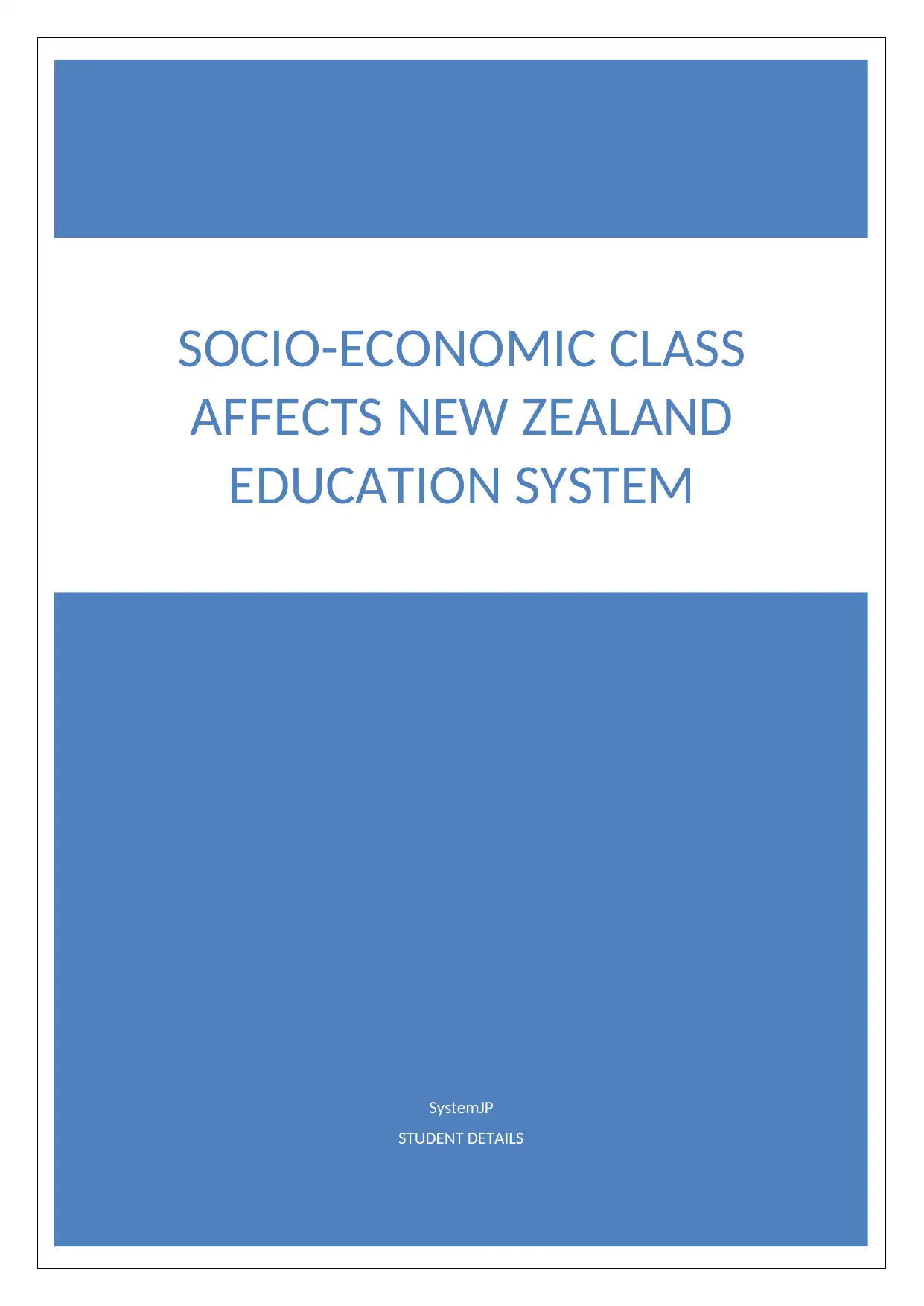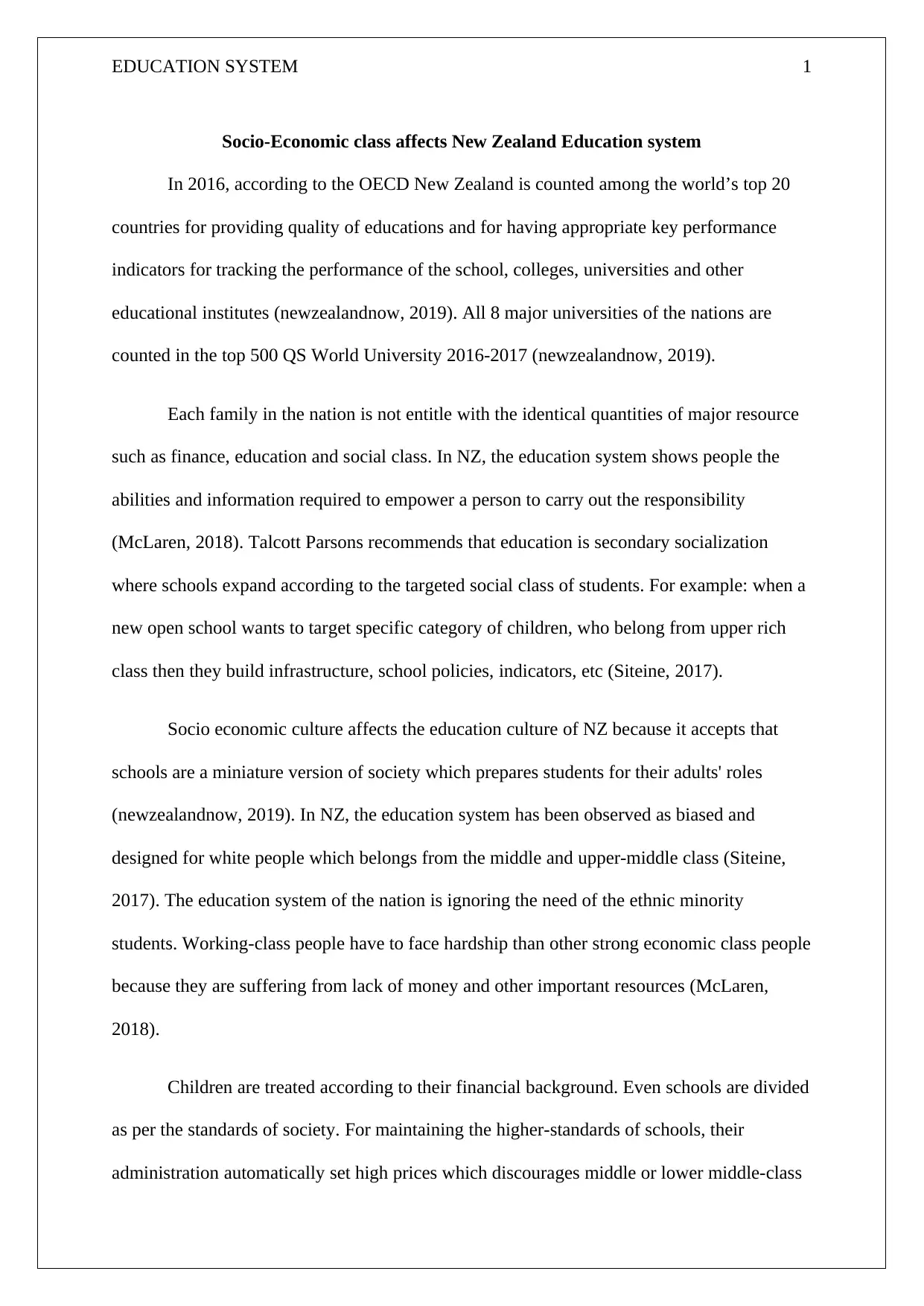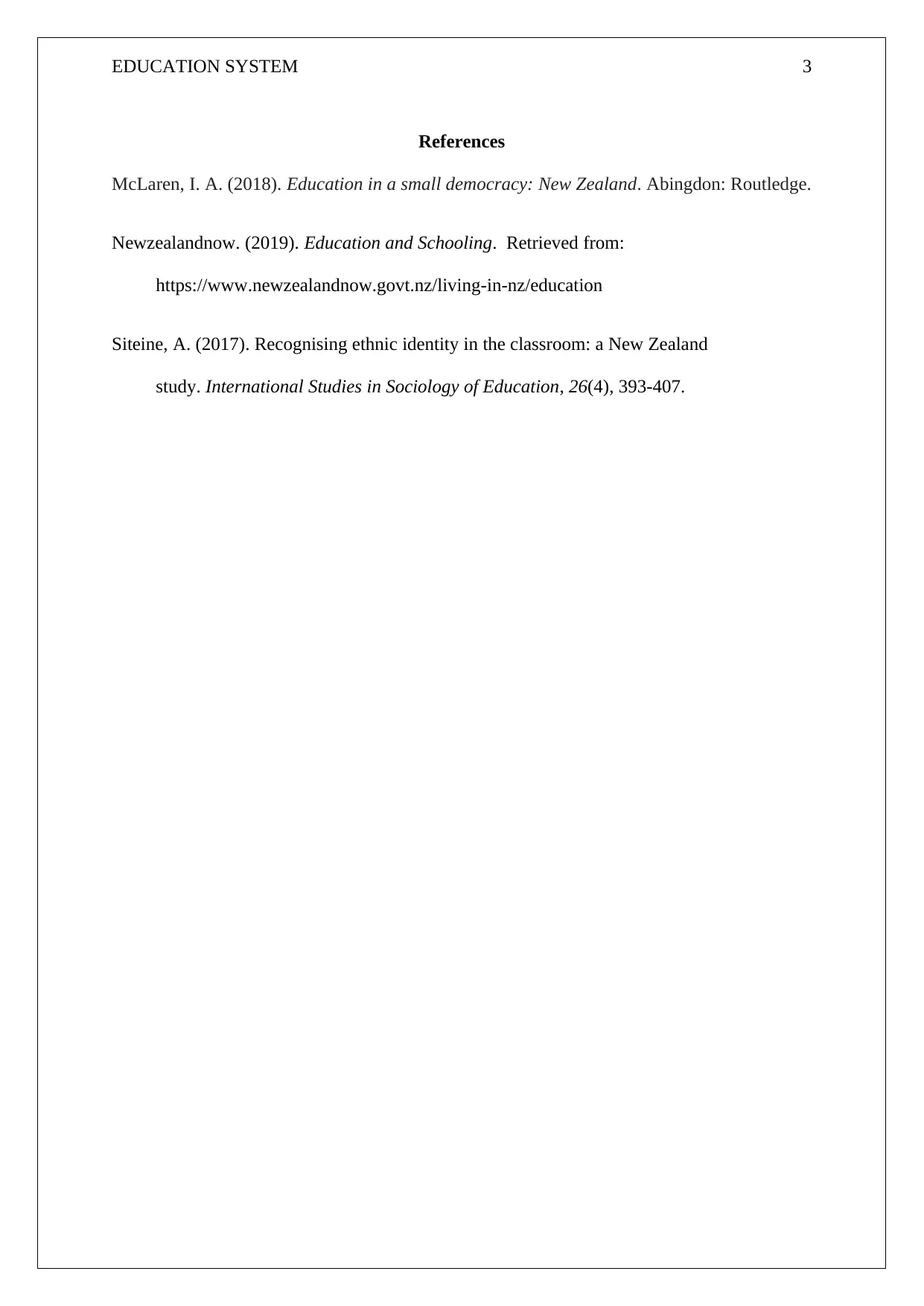Examining Socio-Economic Influences on New Zealand Education System
VerifiedAdded on 2022/12/27
|4
|466
|49
Report
AI Summary
This report examines the influence of socio-economic class on the New Zealand education system. It highlights that the education system in New Zealand, though ranked highly, is affected by socio-economic factors, with disparities in access and resources. The report discusses how schools may cater to specific social classes, and how working-class families may face hardships. It references the impact of financial constraints and how ethnic minority students may be disadvantaged. The report concludes that socio-economic culture significantly impacts the New Zealand education system, reflecting societal inequalities within the educational landscape. The report also includes references to support the claims.
1 out of 4











![[object Object]](/_next/static/media/star-bottom.7253800d.svg)